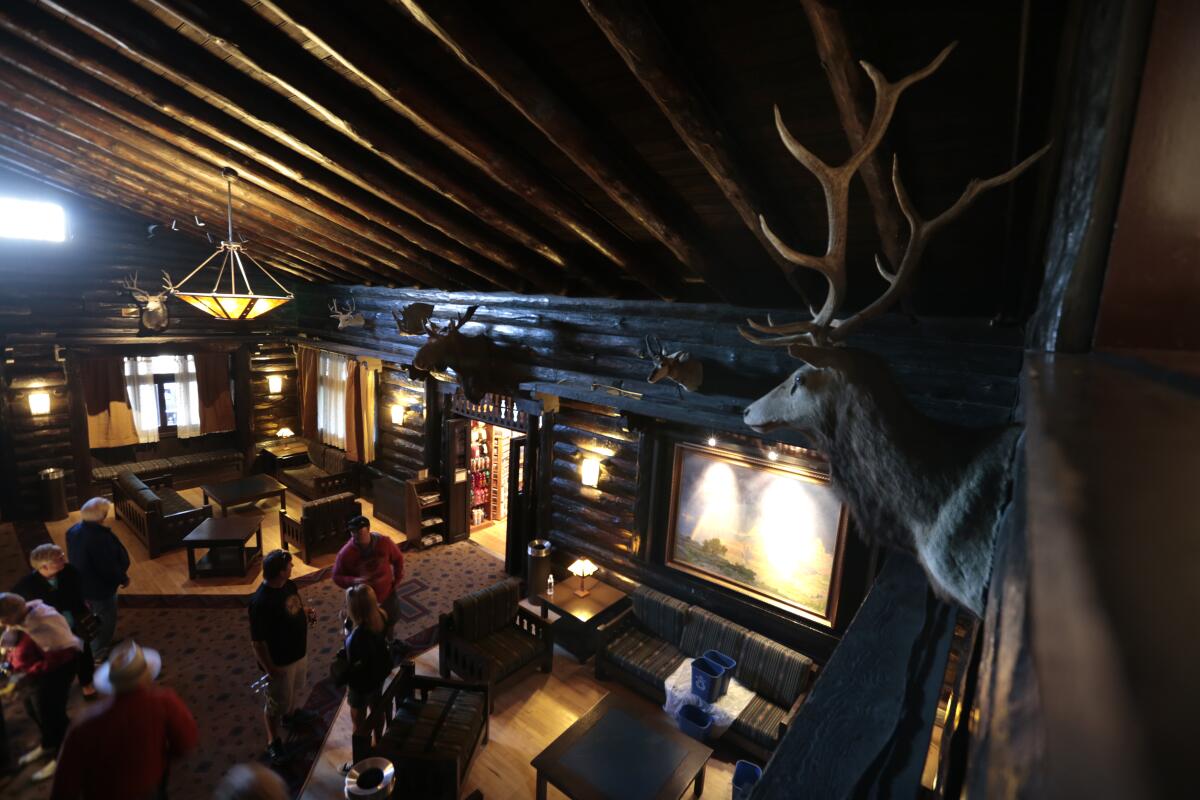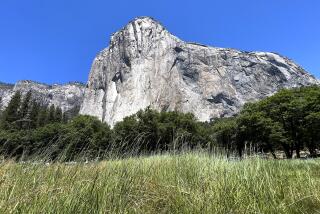Pack your patience as summer jobs go unfilled in national parks

- Share via
As families in California and beyond prepare for their summer vacations, hotels and restaurants throughout the West are short on staff, including many in popular national parks.
Industry veterans say this is partly because the pandemic recovery has put workers in high demand everywhere. But it’s also because tens of thousands of foreign student workers, who often take positions in Yosemite, the Grand Canyon and other popular destinations, are still unable to enter the U.S.
“I can’t remember a year where we‘ve had this many vacancies at this point in the season,” said Matt Morgan, vice president and co-owner of Colorado-based Coolworks.com, which tracks hospitality jobs and other seasonal positions in national parks.
What does this mean for travelers?
“Anywhere you go, you’ve got to be prepared to be patient and be compassionate. The folks that are there are probably working really long hours because they’re short-staffed,” Morgan said.
“I would expect long lines at times,” said Sonny Taylor, vice president of Janus International, a visa sponsorship agency that matches international college students with hospitality jobs and internships in U.S. parks and elsewhere. “There are definitely still a lot of empty jobs in many parts of the country, especially in the hospitality sector.”
After a recent note seeking reader reports on park readiness, website nationalparkstraveler.org heard from several travelers who lamented the quality and quantity of park concession workers and accused concession companies of pinching pennies.
What’s frustrating for visitors, however, might be encouraging for some job seekers.
“I’m seeing a lot of jobs that previously paid $10 an hour [with free or subsidized room and board] going up to $12 or $13 an hour,” Morgan said. In addition, “we’re seeing a lot of employers offer free housing or discounted housing or bigger end-of-season bonuses.” In a few cases, Morgan said, employers are offering signing bonus of up to $500, something he’s never encountered.
Morgan estimated that his company has 3,000 to 4,000 park concession jobs open, many of them kitchen and housekeeping positions.
In Yosemite, where an Aramark subsidiary runs lodgings and restaurant concessions, management on June 2 had 54 jobs open, including barista, grill cook, campground host, Wawona Hotel piano player, tow truck driver, hotel housekeeper and front desk positions, along with positions in retail sales and custodial services. Also vacant: the general manager’s office at the Ahwahnee Hotel.
Aramark spokeswoman Lisa Cesaro said those job postings are “similar to a normal year,” noting that some facilities remain closed “due to continued [pandemic] safety measures and limited housing for staff.
“We typically have some international staff members in the summer season, but it is fairly low — approximately 5% of the total team. This year all our staff are based in the U.S.A.,” Cesaro said.
To limit crowds this summer, the park requires day-trippers to make reservations.
At the Grand Canyon, where Xanterra holds the concession, the company website listed 95 job openings, including mule wrangler, bus mechanic, trail crew member, gardener, firefighter, housekeeping inspector, many food-service jobs and the director of human resources.
“We are hiring local and regional,” said Xanterra Travel Collection spokesman Rene Mack by e-mail. “As you know, there are millions of jobs available this summer and many industries are having staffing challenges.”
Xanterra operates hotel, restaurant or retail operations at Yellowstone, Grand Canyon, Glacier, Zion and Rocky Mountain national parks and Mt. Rushmore National Monument.
Until the coronavirus outbreak, hospitality industry veterans say international workers were part of the seasonal rhythm of the national park system. Many of those workers were college students from abroad, working under J-1 visas that permit seasonal employment, often in summer, sometimes in winter.
By 2019, Taylor said, the U.S. State Department’s J-1 program had grown to include about 105,000 students from around the world, all headed for seasonal hospitality jobs in U.S. tourist destinations, including national parks.
Last summer, global travel was out of the question and most park hotels and restaurants were closed or operating at substantially reduced capacity, which meant few workers were needed.
As this summer begins, demand is booming, but Taylor estimated the number of incoming J-1 workers at 17,000 to 25,000 — “a quarter of what it was before the pandemic.”
With pandemic conditions varying worldwide, many countries still ban travel, and many U.S. embassies abroad are operating on limited schedules. Taylor said that means fewer students have a chance at obtaining visas. Even those who get a coveted J-1 visa, he said, can face steep challenges in getting to the U.S., including vaccination and quarantine requirements.
Taylor said Janus is sending about 200 Thai students to national parks this summer; they will be spread among the Grand Canyon, Mt. Rushmore and Death Valley.
The hiring cycle starts in December or January and is usually completed by now, Morgan said. But it’s June and “we have the same number of jobs available that we usually see in a typical March. … I think people are going to be trying to fill positions all the way through August.”
More to Read
Sign up for The Wild
We’ll help you find the best places to hike, bike and run, as well as the perfect silent spots for meditation and yoga.
You may occasionally receive promotional content from the Los Angeles Times.







